2024 School Counselor of the Year Winner & Finalists
Counseling Schools Search
When you click on a sponsoring school or program advertised on our site, or fill out a form to request information from a sponsoring school, we may earn a commission. View our advertising disclosure for more details.
“I aspired to be the person that others could turn to when they felt alone.”
Diana Virgil, PhD, ASCA’s 2024 School Counselor of the Year
School counselors are a precious resource. They provide vital support and expert guidance during the formative years of a young adult’s life. They advocate for the marginalized. They make learning environments safer and the future less scary. In what’s become a nationwide mental health crisis, they stand on the front lines: our schools.
Each year, the American School Counselor Association (ASCA) selects five school counselors who exemplify why we need the profession now more than ever, and from those five, one winner is selected. The School Counselor of the Year Selection Committee includes principals, school counselors, and representatives from education-related organizations.
For 2024, the panel selected the finalists based on several criteria, including school counseling innovations, exemplary school counseling programs, leadership and advocacy skills, and contributions to student outcomes.
The School Counselor of the Year and the Finalists will be celebrated in Washington, DC, in February 2024. They will also participate in online events during National School Counseling Week, which takes place February 5-9, 2024.
To learn more about each of the finalists, read on.
2024 School Counselor of the Year Finalist: Cindy Bourget
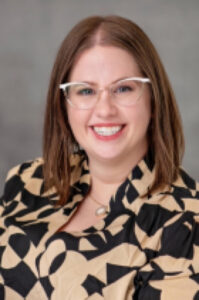
Cindy Bourget is a school counselor at Elk Mound Middle School in Elk Mound, Wisconsin. She’s been a school counselor since 2016. Bourget earned her bachelor’s degree from the University of Wisconsin – River Falls, and her master’s degree from the University of Wisconsin – Stout. ASCA highlighted Bourget’s work with teaching male students coping and conflict management skills, resulting in lower office discipline referrals (ODRs).
After leaving high school, Bourget, like most 18-year-olds, wasn’t sure what to do with her life. But while working her way through university, she ended up working for her county’s UW-Extension Office, where she took her first courses in school counseling.
“I fell in love with the balance of student, community, and adult education and engagement that school counseling can offer,” Bourget says. “That was almost ten years ago, and I am so fortunate to have found a career that is truly a part of me!”
When asked about an area of school counseling she’d like to draw more attention to, Bourget spotlighted the amount of training and continued training that school counselors receive to maintain their license.
“In many cases, school counselors obtain training that is almost identical to private counselors,” Bourget says. “With this knowledge, we can be such an asset to our schools and communities: helping to build school-wide systems that support all students, providing and recommending interventions to build coping skills that can be used for the rest of their lives, supporting staff with training to help students generalize skills, and guiding community conversations that ensure all voices are engaged.”
When asked her advice to new and aspiring school counselors who are just beginning their education and career, Bourget says,
“Most of what we do in a day is to help students learn from mistakes, be able to sit in the uncomfortable, and learn to give themselves some grace. Walk the walk! Give yourself grace, know you’ll never know it all, and be at peace sitting in the uncomfortable knowing it can bring the best growth. You’ve got this!”
2024 School Counselor of the Year Finalist: Kristin D. Nye
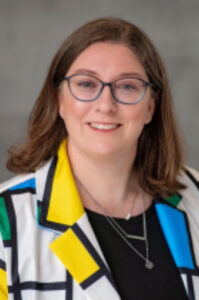
Kristin Nye is the lead school counselor at Anna P. Mote Elementary School in Wilmington, Delaware. She has been a school counselor since 2005. Nye received her bachelor’s degree from the University of Delaware and her master’s degree from West Chester University. ASCA has highlighted Nye’s work with diversity and inclusion: Anna P. Mote is the first elementary school in its district to have a diversity club.
Nye’s journey into school counseling didn’t begin until her senior year of college. Up until then, she’d been a pre-med student, first with a focus in biology and later in psychology. It wasn’t until her senior thesis, when she worked in her university’s disabilities studies program, that her eyes were opened to the different school-based mental health supports available, and the ways in which school counseling was the best fit for her desire to work with children and mental health.
When asked about an area of school counseling to which she’d like to draw more attention, Nye points to the foundational and fundamental role of school counselors in PreK-12 education.
“We work with the whole child to make sure they are regulated and ready to learn so that teachers can make the most positive impact educationally,” Nye says. “Our focus as school counselors is not only on the academics but also on the career readiness and social/emotional wellbeing of all students. This allows us to bring a more comprehensive lens to the table to maximize student potential and outcomes. We are essential to education now and in the future.”
When asked her advice to new and aspiring school counselors who are just beginning their education and career, Nye shares,
“As you are starting out, realize and embrace that being a school counselor is a journey of learning, growth, flexibility, and resilience. This journey is rewarding but can become overwhelming. Make sure to very early on set boundaries for yourself, stick to them, and share them with others. Embed practices into your life that allow you to remain strong and steadfast as a school counselor while also maintaining your own social and emotional health. This will allow for long-term success and sustainability throughout your career.”
2024 School Counselor of the Year Finalist: Jennifer Sack
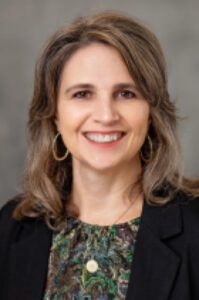
Jennifer Sack is the lead school counselor at Booker T. Washington High School in Tulsa, Oklahoma. She has been a school counselor since 2012. Sack earned her bachelor’s degree from St. Mary’s College at Notre Dame and her master’s degree from the University of Tulsa. She is an ASCA U Legal & Ethical Specialist and College Admissions Specialist.
ASCA has highlighted Sack’s work with ethics and policy: her efforts, in collaboration with ASCA and OSCA, were crucial in revising a proposed bill’s legal language in a way that protected trust between students and their counselors.
Sack became interested in psychology in her late middle school and early high school years, when her mother went back to school to pursue her degree. While her mother took courses in subjects like behavior modification, sociology, and other human development-related courses, Sack would look through her books.
“The idea of helping people work through their personal struggles and reshaping their behavior was intriguing,” Sack says. “But I was also interested in teaching. I knew I wanted to work with a clientele of young people. Being a counselor in a school setting seemed like the best of both worlds.”
When asked about an area of school counseling to which she’d like to draw more attention, Sack points to the desperate need for more school counselors in America’s schools.
“The student-to-counselor ratio is excessively high in most states, yet the demands on counselors to produce successful student outcomes is ever increasing,” Sack says. “ASCA recommends a maximum of 250 students per counselor. My personal caseload runs closer to 350-to-one, and in some states, it’s as high as 800 or 1,000 students to one counselor. That’s not conducive to providing meaningful service or student support. It’s important for people to understand the critical role school counselors play in student academic achievement, social-emotional development, and post-secondary preparedness. A critical part of best serving students is being able to build relationships with them, and you simply can’t do that effectively with an excessively high caseload.”
When asked her advice to new and aspiring school counselors who are just beginning their education and career, Sack says,
“Be patient with yourself. You can’t solve or fix every situation for every kid, but that doesn’t mean you aren’t making a difference or doing a good job. Advocate for what your students need, but don’t be afraid to advocate for your own needs too to be the best counselor you can be.”
2024 School Counselor of the Year Finalist: Jorge Torres
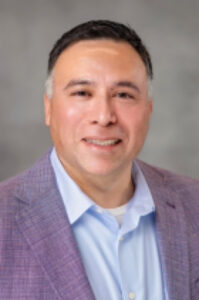
Jorge Torres is the lead school counselor at Foster High School in Tukwila, Washington. He has been a school counselor since 2000. Torres earned his bachelor’s degree from Eastern Washington University and his master’s degree from Heritage University. ASCA has highlighted Torres’s work in arranging a legal clinic that provided support for children and families with immigrant backgrounds.
After giving his older brother information about a local GED program, Torres knew he wanted to be a school counselor in high school.
“I realized that I really enjoyed finding resources and helping others,” Torres says. “It made me curious about learning more about careers that involved helping others such as education. Right after completing my teaching degree, I learned about what school counselors do and their roles in supporting students, and it caught my attention. I realized then that school counseling was what I was meant to do.”
When asked about an area of school counseling to which he’d like to draw more attention, Torres points to the need for more school counselors of color: “I believe it is important for students of color to see themselves in their school counselors,” Torres says. “It is also valuable for students not of color to work with school counselors of color. We need to find strategies to recruit and retain a diverse set of school counselors.”
When asked her advice to new and aspiring school counselors who are just beginning their education and career, Torres says,
“Always keep your ‘why’ in mind, and have a community of support that includes your colleagues, family, and friends. I would also encourage new school counselors to have fun and enjoy your journey to the fullest.”
Winner of the 2024 School Counselor of the Year Award: Diana Virgil, PhD, ACSC
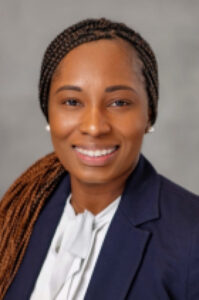
Dr. Diana Virgil is a school counselor at Daleville High School in Daleville, Alabama. She has been a school counselor since 2015. Virgil received her bachelor’s, master’s, and educational specialist degrees from Mississippi College and her doctoral degree from the University of the Cumberlands.
Dr. Virgil is an ASCA-Certified School Counselor, a National Certified School Counselor, and a National Certified Counselor. ASCA has highlighted Virgil’s work with boosting awareness around dual-enrollment programs at Daleville and establishing partnerships with Enterprise State Community College, a local community college.
Dr. Virgil’s path to becoming a school counselor had its own twists and turns. Beginning her academic journey as a pre-med biology major, she found that she did not love math, but enjoyed a particular course she took in psychology. After joining the military and assisting her fellow soldiers in pursuit of higher education, she uncovered a passion for counseling and helping others. She soon connected this passion with a feeling she’d carried with her from a young age.
“Growing up as the youngest out of my mother’s seven children, with an 18-year age gap between me and my living sibling, I often felt like an only child,” Dr. Virgil says. “Many times, I didn’t have someone to confide in or express my emotions to, and I did not know what a school counselor actually did. I never sought help for my feelings. Therefore, I aspired to be the person that others could turn to when they felt alone. After much prayer and trusting myself, I knew this was the right career path. For me, the purpose is to be someone my students can genuinely connect with and rely on as they journey through this thing called life.”
In and outside of her counseling work, Dr. Virgil focuses on the importance of mental health support and awareness, advocating for the integration of additional mental health programs in schools. This involves efforts to destigmatize mental health discussions and ensure school counselors receive enhanced training and resources to address the mental well-being of students effectively by using data.
When asked her advice to new and aspiring school counselors who are just beginning their education and career, Dr. Virgil says,
“Have confidence in the process, trust in yourself, and believe in your learning journey. Embarking on something new may seem overwhelming, but by reviewing data, adhering to the ASCA implementation guide for developing a comprehensive school counseling program, building a strong principal-school counselor relationship, and connecting with a network of fellow school counselors, you can navigate your first year more effectively.”

